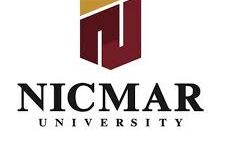➤ Launches AI-Enabled GHA STEP NEET-PG App to Support Postgraduate Medical Aspirants
Bengaluru, May 22, 2025: The Global Healthcare Academy (GHA) today hosted a landmark Round Table on the theme “Indian Healthcare Education: Poised for the Future, Ready for the World,” bringing together key stakeholders to discuss India’s rapidly evolving medical education ecosystem and its emerging global leadership role.
The event, themed “The NEXT STEP Symposium,” featured the participation of eminent leaders from academia, government, and the healthcare industry, including Dr. B.S. Ajaikumar (Executive Chairman, HCG Enterprises), Dr. K.B. Linge Gowda (Vice-Chancellor, SSAHE), Mr. Sreenivasa Murthy, IAS (Retd.) (Chief Executive, RALC), Uma Nambiar, (Executive Director, IISC Medical School), and Dr. Naveen Thimmaiah (Director, Kidwai Memorial Institute of Oncology).
The event also marked the official launch of GHA’s STEP NEET-PG App, a strategic tool designed to support postgraduate medical aspirants through AI-powered learning and competency-based assessments.
Dr. B.S. Ajaikumar, Executive Chairman, HCG Enterprises said that “Having received medical training in both India and the United States, I can state with confidence that India’s medical education system now rivals the finest globally. Indian graduates possess a distinct advantage due to their extensive clinical exposure, made possible by the country’s exceptionally high patient volume, and a curriculum that is increasingly aligned with international benchmarks. We are not only prepared to contribute on the global stage—our expertise is in growing demand worldwide.
Equally important is the emphasis we must place on communication skills and patient trust, which are at the heart of effective clinical practice. The ability to listen, reflect, and connect with empathy is as vital as scientific acumen. Patience and introspection allow doctors to better understand their patients’ needs and to grow from every clinical experience.
As we nurture the next generation of physicians, it is critical that they actively engage in real-world training environments—learning not just procedures and protocols, but also the values of compassion, integrity, and holistic care. Medical education must go beyond textbooks and simulations to develop well-rounded professionals who can lead with both competence and conscience.”
“India today hosts the largest English-medium medical education ecosystem, with unmatched patient volume and infrastructure. Our institutions are no longer just training Indian doctors, they are preparing global healers. By setting common standards like the forthcoming NEXT examination, we are making Indian qualifications globally portable and relevant.” Says Anitha Niranjan, Managing Director of Global Health Academy.
The round table facilitated robust discussions on ongoing reforms. The National Medical Commission (NMC) has replaced the Medical Council of India (MCI), introduced Competency-Based Medical Education (CBME), and will soon implement NEXT, a unified licensing exam aimed at aligning Indian MBBS graduates with international benchmarks. India’s rapid expansion is evident, there are now 704 medical colleges, up from 387 a decade ago, offering 1.18 lakh MBBS seats for NEET-UG 2025. The doctor-to-population ratio has improved to 1:811, surpassing WHO’s 1:1000 norm.
The discussions also focused on digital-first learning. Initiatives like the Ayushman Bharat Digital Mission and e-Sanjeevani have introduced 73 crore ABHA IDs and enabled 36 crore teleconsultations, preparing students for a future driven by telemedicine, electronic health records (EHRs), and digital diagnostics. Under the National Commission for Allied & Healthcare Professions Act, 2021, India has standardized 56 allied-health roles. Additionally, AR/VR simulation labs in Ahmedabad, Chennai, Assam, and Punjab are now delivering Tier-1 clinical simulation training on-campus.
India’s reforms align directly with the WHO Global Health Workforce Strategy 2022–2030, supporting capacity expansion, enabling task-shifting, and creating mid-level cadres under regulated frameworks.
“There is a rising global demand for India-trained healthcare professionals,” said Dr. B.S. Ajaikumar, Executive Chairman, HCG Enterprises. “The BAPIO-NHS partnership is on track to fast-track 1,000 Indian doctors to the UK by the end of 2025. Additionally, recruitment of Indian nurses and allied health professionals to OECD and GCC countries has seen a 22.5% rise between 2023 and 2025. The competency-based medical education (CBME) framework is strengthening our talent pool by integrating modules on ethics, global health, and cross-cultural communication, alongside rural internships and electives at WHO Collaborating Centres. Initiatives like Study in India and ICCR scholarships are also gaining momentum. Lucknow University alone received 2,379 foreign applications for the 2025–26 academic year, a threefold increase over five years.”
India is actively addressing the key challenges in healthcare education bridge the rural-urban divide, 157 new government medical colleges have been established including 40 in aspirational districts along with mandatory rural internships for medical graduates. Faculty shortages are being tackled through initiatives like ‘Teach-for-Health’ programs, attractive incentives, and sabbatical repatriation schemes aimed at drawing top talent back into academia. To ensure consistency in education quality, the National Medical Register and unannounced inspections by the National Medical Commission (NMC) are playing a crucial role in standardizing practices across institutions.
India’s healthcare education landscape is being transformed by a series of catalytic policy initiatives. The National Medical Commission (NMC) Act, 2019, along with the proposed National Exit Test (NEXT), aims to ensure uniform standards in medical education and licensing across the country. The National Education Policy (NEP) 2020 promotes flexible, interdisciplinary learning pathways, fostering a more holistic approach to healthcare training. Major infrastructure investments under the PM-Ayushman Bharat Health Infrastructure Mission (PM-ABHIM), with an outlay of ₹64,180 crore, are strengthening the physical capacity of institutions. Meanwhile, the Ayushman Bharat Digital Mission is emerging as a digital backbone for learning and data integration, enabling more connected, efficient, and accessible medical education systems.
“India is not just meeting the needs of 1.4 billion citizens. It is rising as a global talent hub in healthcare education ethically grounded, digitally enabled, and globally competent,” said Anitha Niranjan
The Round Table concluded with a collective pledge to ensure that graduates of India’s medical and allied-health institutions are equipped not just for domestic service, but for addressing global healthcare shortages with innovation, empathy, and excellence.
 Newspatrolling.com News cum Content Syndication Portal Online
Newspatrolling.com News cum Content Syndication Portal Online







